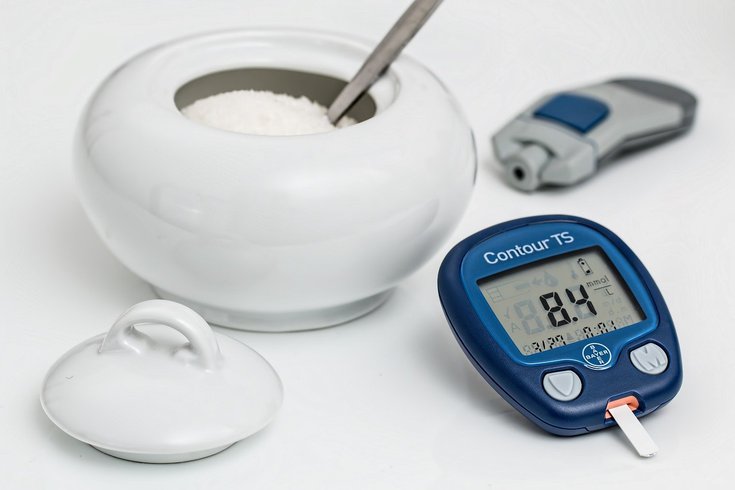
March 22, 2021
 Steve Buissinne/Pixabay
Steve Buissinne/Pixabay
Blood glucose control can be affected by not taking medicines as prescribed, eating too much or too little food, failing to exercise regularly and not monitoring blood sugar levels closely.
Having poorly-controlled type 1 diabetes can increase a child's risk of COVID-19 complications and death. But research also shows that children better managed their diabetes during the lockdowns last spring, underlying the need for additional support as schools reopen amid the pandemic.
The risk of COVID-19 complications is as much as 10 times higher for children with hemoglobin A1c levels higher than 9% than it is for children with levels under 7% — the mark for well-controlled diabetes, according to new data presented at the Endocrine Society's annual meeting. Hemoglobin A1c tests measure the average blood sugar levels over the last two or three months.
Children who developed COVID-19 were more likely to die, require an endotracheal tube to help them breathe, develop pneumonia or develop septic shock if they had type 1 diabetes, the researchers found.
"This study shows keeping diabetic children's blood sugar under control is more important than ever during the pandemic," said Dr. Manish Raisingani, the study's lead author and a pediatric endocrinologist at Arkansas Children's Hospital. "The findings will help children with type 1 diabetes and their families make better choices about the safety of attending school in person and engaging in other in-person activities during this pandemic."
The researchers used an international medical records database to compare data on 2,000 children with type 1 diabetes and COVID-19 to data on more than 300,000 children with COVID-19 who didn't have type 1 diabetes.
"Many parents of children with type 1 diabetes are wondering if it's safe to send their child to school during the pandemic," Raisingani said. "Our findings indicate that if their A1c is high, it would be best to have them attend virtual school, but if it's 7% or under, their risk is similar to other children without type 1 diabetes."
Another study highlighted the challenges children and parents face managing type 1 diabetes at school and during other meals away from home — settings where children often face peer pressure.
The study found that blood sugar levels improved among 180 children and teenagers with type 1 diabetes from two different communities during the first 12 weeks of lockdown in the United Kingdom.
Their average blood sugar and long-term blood sugar measurements dropped when compared to the 12 weeks preceding the stay-at-home orders. Their blood sugar readings showed less variability during the lockdown too.
"Children and families found it easier to manage this disease when they were forced to stay at home," said lead researcher Neil Lawrence, of the U.K.'s Sheffield Children's Hospital National Health Service Foundation Trust.
"This helps us to understand the pressure that is put on patients and families when trying to live normal busy lives with activities outside of the home. We need to give them extra support at school and when they go out socializing to prevent them from developing unfortunate complications in later life."
So what can parents do to help their children and teens better navigate meals away from home and social pressure?
Pediatricians from Nemours Children's Health System say blood sugar control can be affected by not taking medicines as they are prescribed, eating too much or too little food, failing to exercise regularly and not monitoring blood sugar levels closely.
Illness or stress without modifications made to a child's treatment also can cause poor blood glucose control.
Parents can help by making sure their children are taking insulin or other medication as prescribed and that they are testing their blood sugar levels regularly based on the treatment plan. Providing children with meals and snacks that fit into the prescribed meal plan and encouraging regular physical activity is also important.
Pediatricians acknowledge that managing diabetes in the teenage years can be particularly challenging. Teens want more control over their lives and to hang out more with friends. That often includes more fast food options such as pizza and burgers.
The experts at Children's Hospital of Philadelphia say parents can help give their teens the flexibility they crave by talking to their child's provider about creating a more flexible insulin program that better fits their changing lifestyles.
They also advise parents to slowly let teens take charge of their own diabetes management plans.
Teens also may struggle more emotionally with the limits diabetes put on their lives. Parents who notice changes in their teenagers' sleep or eating patterns, more food fluctuations and higher blood sugar levels are advised to talk to a provider.